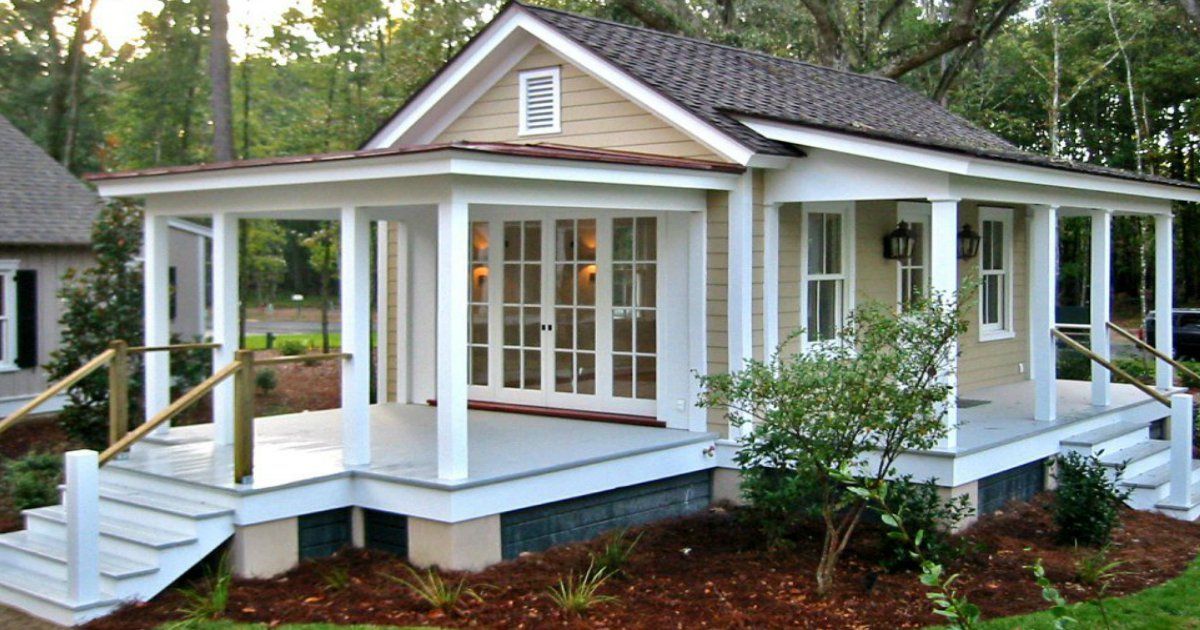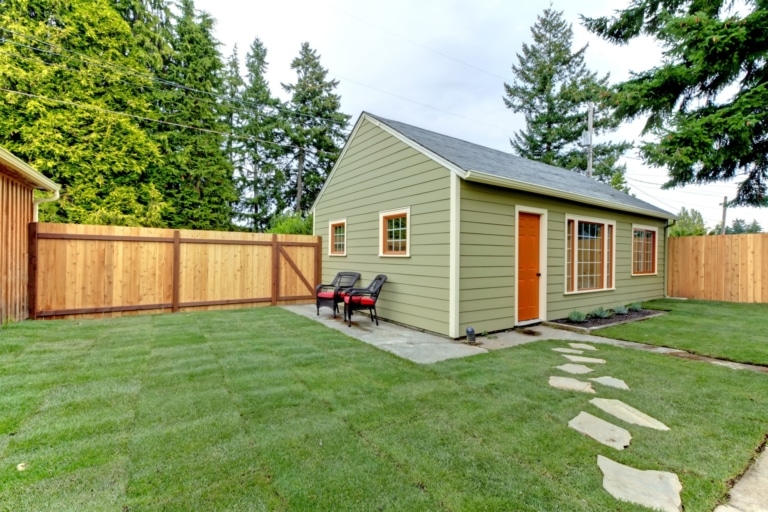ADUs Offer Unparalleled Opportunities for Realtors in Vibrant California Real Estate Market
The California real estate landscape is always evolving, presenting new opportunities for those ready to seize them. One such opportunity that has been gaining momentum and drawing attention from savvy realtors and investors alike is the development and sale of Accessory Dwelling Units (ADUs). With the state’s ongoing housing shortage and the push for more affordable living options, ADUs stand out as a golden opportunity for real estate professionals to broaden their portfolios and offer unique solutions to their clients.
Why ADUs Represent a Big Opportunity
ADUs offer realtors in California a significant opportunity by tapping into the demand for affordable housing and rental options. Backed by legislative support, these units enable realtors to expand their portfolio and cater to a growing market segment, enhancing property value and investment appeal.
1. Market Demand
The demand for affordable housing in California has never been higher. The California Department of Housing and Community Development reports a need for over 1.8 million new housing units by 2025 to keep pace with demand.
ADUs contribute to filling this gap by adding to the existing housing stock in a manner that is less disruptive to communities and more affordable than traditional new construction. By converting existing structures or adding new units on existing residential lots, homeowners can increase the supply of affordable housing without the need for large-scale developments.
Rental Income Potential
ADUs also represent a significant opportunity for homeowners to generate rental income. According to a survey by the Terner Center for Housing Innovation at UC Berkeley, the median rent for ADUs in California can be quite competitive, often lower than local market rates for traditional apartments, making them an attractive option for renters.
For homeowners, this translates into an appealing way to offset mortgage payments or earn additional income, with UC Berkeley Center for Community Innovation reporting some areas seeing average monthly rents for ADUs ranging from $1,900 to $2,200 in 2021, depending on the size, location, and amenities offered.
Increased Property Values
The addition of an ADU can have a seriously positive impact on property values depending on their methodology and quality. Real estate data indicates that properties with ADUs can see an increase in value, offering homeowners not just immediate income potential but also long-term investment returns. This aspect makes ADUs particularly appealing in California’s competitive real estate market, where maximizing property value is a key consideration for many homeowners.
2. Legislative Support
California’s government has passed several laws to streamline the ADU development process, reduce fees, and minimize bureaucratic hurdles. This supportive legislative environment opens up significant opportunities for realtors to guide their clients through the ADU development process.
Legislative Milestones for ADUs in California
- Senate Bill 9 (SB 9): Enacted in September 2021, SB 9 allows for the division of residential lots and the development of up to four residential units on single-family zoned parcels. This law significantly opens up opportunities for the creation of ADUs and junior ADUs (JADUs) by simplifying the process and reducing restrictions on lot splits and development.
- Assembly Bill 68 (AB 68) & Assembly Bill 881 (AB 881): Both effective from January 2020, these bills have been instrumental in streamlining the ADU application process. They mandate that local jurisdictions approve ADU and JADU applications within 60 days without a hearing, as long as the unit complies with state and local regulations. These laws also reduced parking requirements and eliminated floor area ratios and lot coverage limitations for ADUs, making it easier and more feasible to build them.
- Senate Bill 13 (SB 13): This bill, effective from January 2020, reduces fees for ADU development, including utility hook-up fees and impact fees, which can be prohibitively expensive for homeowners. By limiting the fees that cities and utility companies can charge for ADU construction, SB 13 makes ADU projects more financially viable.
- Senate Bill 1069 (SB 1069): Effective from January 2017, SB 1069 was one of the earlier efforts to promote ADU development. It required local governments to streamline their ADU approval processes, reduced parking requirements, and allowed ADUs to be built in existing structures, facilitating the conversion of garages or similar structures into living spaces.
- Assembly Bill 670 (AB 670): This law, effective from January 2020, voids any homeowner association (HOA) rules or bylaws that unreasonably restrict the construction of ADUs on single-family residential lots. This legislation supports homeowners in HOA-managed communities who wish to add ADUs to their properties.
3. Versatility and Value
ADUs are versatile and can serve various purposes, including rental income properties, guest houses, or homes for aging relatives. This versatility adds considerable value to properties, making them more appealing to a broader range of buyers.
Properties with ADUs tend to stand out in competitive markets, drawing more interest and higher offers due to their added value and utility.
4. Sustainability
As more individuals seek sustainable and eco-friendly living options, ADUs offer an attractive alternative to traditional housing. Their smaller size and the potential for green building practices appeal to environmentally conscious buyers looking for investments in a sustainable future.
- Land Efficiency – ADUs make efficient use of existing residential properties, reducing the need for new constructions and helping preserve green spaces.
- Energy Efficiency – Due to their smaller size, ADUs often require less energy for heating and cooling, appealing to buyers interested in reducing their carbon footprint and utility bills.
- Sustainable Commuting – The strategic placement of ADUs within urban settings can offer residents easier access to public transportation, bike paths, and walking routes, promoting a reduction in car dependency.
- Green Building Practices – Incorporating renewable energy sources, like solar panels, and using materials that minimize waste during construction, can make ADUs more attractive to buyers looking for eco-friendly homes.
- Water Conservation – Features such as low-flow fixtures, greywater systems, and rainwater harvesting in ADUs can significantly reduce water usage, a selling point in areas facing water scarcity.
Highlighting these points can help realtors market ADUs.
A New Avenue of Growth for Real Estate Professionals
In the ever-evolving landscape of real estate, Realtors are constantly looking for ways to stand out, deliver value to their clients, and tap into new market trends. Accessory Dwelling Units represent a unique opportunity for real estate professionals to do just that.
By understanding and leveraging the benefits of ADUs, agents can position themselves as forward-thinking experts, offer innovative solutions to clients, and navigate the market with a fresh perspective.
Unlocking New Listings and Sales Opportunities
ADUs open up a plethora of new listings and sales opportunities for real estate agents. Properties with existing ADUs appeal to a diverse array of buyers, including multi-generational families, investors looking for rental income, and individuals seeking flexible living spaces. Furthermore, advising clients on the potential of adding an ADU can help secure listings by demonstrating how to increase a property’s value and attractiveness.
Enhancing Property Value and Appeal
Educating sellers about the advantages of ADUs can be a game-changer in competitive markets. An ADU can significantly enhance a property’s appeal by offering additional living space, potential rental income, and increased property value. Real estate agents equipped with this knowledge can advise clients on strategic improvements, making their listings stand out and attracting higher offers.
Providing Solutions to Client Needs
Real estate agents are more than just salespeople; they are advisors who guide their clients through one of the most significant transactions of their lives. By understanding the versatility of ADUs, agents can provide tailored solutions to a wide range of client needs. Whether it’s finding a home with an ADU for a buyer needing space for an aging parent or suggesting an ADU construction to a seller for maximizing returns, agents can offer valuable insights that align with their clients’ goals.
Navigating Regulations and Processes
One of the key roles of a real estate agent is to help clients navigate the complexities of buying, selling, and improving properties. This includes understanding local regulations and processes related to ADUs. Agents who familiarize themselves with these regulations can offer indispensable advice to clients, helping them to avoid pitfalls and streamline the process of adding an ADU to their property.
Marketing Expertise for Unique Properties
ADUs require a nuanced approach to marketing, highlighting not just the features of the main property but also the added value of the ADU. Real estate agents can use their marketing expertise to craft compelling narratives around properties with ADUs, showcasing the potential for rental income, guest accommodations, or a personal retreat. This targeted marketing can attract a wider pool of interested buyers, driving demand and potentially higher sale prices.
Building Long-Term Client Relationships
Incorporating ADUs into their business strategy allows real estate agents to build long-term relationships with their clients. By advising on ADU-related decisions, from purchasing properties with existing ADUs to navigating construction and permitting processes, agents can become trusted advisors who clients turn to for all their real estate needs, well beyond a single transaction–even when a client isn’t purchasing a new home or selling their old one
ADUs offer real estate agents a powerful tool for growth, differentiation, and client service. By embracing this trend, agents not only enhance their value proposition but also contribute to solving housing challenges, demonstrating their commitment to innovation and client success in today’s dynamic real estate market.
The Rise of ADUs in California
The journey of ADUs in California is a compelling narrative of adaptation, innovation, and traditional building practices rejuvenating the state’s housing landscape. Known affectionately as granny flats, in-law units, or backyard cottages, ADUs have become a cornerstone in addressing the acute housing shortage while preserving the charm and character of California’s neighborhoods.
Early Beginnings and Evolution
The concept of ADUs is not new; it harks back to early 20th-century housing models where extended families often lived in close proximity. However, post-World War II urban planning and zoning laws favored single-family homes, sidelining ADUs to the background. It wasn’t until the late 20th century that a shift in perspective began to emerge, driven by the pressing need for affordable housing solutions and sustainable urban development.
Legislative Milestones Paving the Way
California’s recent embrace of ADUs as a vital housing solution is a result of both necessity and legislative ingenuity. Recognizing the untapped potential of these units to alleviate the housing crisis, state lawmakers embarked on a series of regulatory reforms starting in the early 2000s. Key legislation aimed at reducing bureaucratic red tape, easing zoning laws, and offering financial incentives for homeowners. These laws revitalized interest in ADU construction, aligning with traditional building methods and community aesthetics.
The pivotal change came with a series of legislative updates between 2017 and 2021, systematically dismantling barriers to ADU construction. These changes made it easier for homeowners to convert existing structures or build new ones, paving the way for a renaissance in traditional, customized construction that respects the architectural integrity of neighborhoods.
The Traditional Builders’ Renaissance
As ADUs gained legal and social acceptance, traditional builders like Acton found themselves at the forefront of a burgeoning market. These builders bring craftsmanship, local knowledge, and a personal touch to each project, contrasting sharply with prefabricated and modular approaches. Traditional construction methods allow for a level of customization and quality that is deeply valued among homeowners seeking to add a personal or complementary architectural statement to their properties.
The hands-on approach of traditional building practices ensures that each ADU is thoughtfully integrated into its surroundings, preserving the charm and character of California’s diverse neighborhoods. This method of construction not only aligns with the state’s environmental goals by using locally sourced materials and minimizing waste but also contributes to the fabric of the community, enhancing the value and appeal of properties.
A Future Built on Foundations of the Past
The rise of ADUs in California symbolizes a return to multi-generational living, offering a modern solution to housing while remaining deeply rooted in the state’s architectural heritage. This resurgence, powered by traditional building practices, represents a promising path forward in the quest for more affordable, sustainable, and community-oriented living spaces.
For builders like Acton, the ADU movement is more than just a trend; it’s an opportunity to apply time-honored skills to meet contemporary needs, crafting spaces that resonate with the values of homeowners and the broader community alike.
A Strategic Angle for California’s Real Estate Professionals
ADUs represent a significant opportunity for realtors in California, providing a solution to the housing shortage while offering a lucrative niche market. By understanding the benefits and regulations surrounding ADUs, you can position yourself as a go-to expert, helping your clients maximize their property’s potential and meet the growing demand for affordable and versatile living spaces.
In the vibrant landscape of California real estate, the time is ripe to explore the possibilities that ADUs offer. Whether you’re assisting homeowners in adding value to their properties or helping buyers find their perfect home, ADUs are a frontier worth exploring. Start seizing the opportunities with ADUs today and unlock a new realm of possibilities in your real estate career.
Building a Brighter Future with Acton ADU
Acton ADU stands out for making the ADU process straightforward and impactful for California’s homeowners. Known for their practical approach and commitment to quality, they help turn the dream of ADU ownership into reality without the hassle. Ready to explore what an ADU can do for you and your clients? Acton’s here to show you the way.




